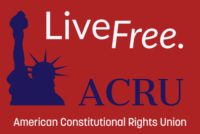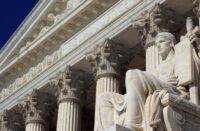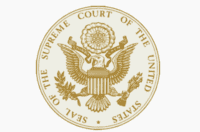Requiring voters to prove they are who they say they are in order to cast a ballot is a simple, common-sense measure that helps ensure honest elections.
Opponents of photo ID falsely charge that such requirements discriminate against poor and minority voters. Each time this claim has been used in the courts, plaintiffs have failed to produce evidence of any individual who was actually denied the right to vote for lack of a photo ID. Despite this fact, and that all demographic groups including African-Americans support voter ID laws, accusations of Jim Crow, the racist system that disenfranchised Southern blacks for generations, continue to be hurled with abandon.
The Supreme Court has stated that because voter ID is free, the inconveniences of going to the Bureau of Motor Vehicles, gathering applicable documents, or posing for a photograph are not substantial burdens on most voters’ right to vote. Nor do they represent a significant increase over the usual burdens of voting — registering or driving to a polling place. If people show up without an ID, they can cast a provisional ballot and bring in their ID later.
The Supreme Court found that the interests in requiring voter ID are unquestionably relevant in protecting the integrity and reliability of the electoral process as part of a nationwide effort to improve and modernize election procedures criticized as antiquated and inefficient.
In Crawford v. Marion County Election Board (2008), the Supreme Court also noted the particular interest in preventing voter fraud in response to the problem of voter registration rolls with a large number of names of persons who are either deceased or no longer live in Indiana. While the trial record contained no evidence that “in-person voter impersonation at polling places had actually occurred in Indiana, such fraud had occurred in other parts of the country, and Indiana’s own experience with voter fraud in a 2003 mayoral primary demonstrates a real risk that voter fraud could affect a close election’s outcome.”
The Supreme Court noted that there was no question that the state had a legitimate and important interest in counting only eligible voters’ ballots. Lastly the Court noted that the state interest in protecting public confidence in elections also has independent importance because such voter confidence encourages citizen participation in the democratic process.
Using a photo ID for voting is a central recommendation from the bipartisan Commission on Federal Election Reform, headed by former President Jimmy Carter and former Secretary of State James Baker. Here’s what the commission’s official report says:
“A good registration list will ensure that citizens are only registered in one place, but election officials still need to make sure that the person arriving at a polling site is the same one that is named on the registration list. In the old days and in small towns where everyone knows each other, voters did not need to identify themselves. But in the United States, where 40 million people move each year, and in urban areas where some people do not even know the people living in their own apartment building let alone their precinct, some form of identification is needed.”
“The electoral system cannot inspire public confidence if no safeguards exist to deter or detect fraud or to confirm the identity of voters. Photo IDs currently are needed to board a plane, enter federal buildings, and cash a check. Voting is equally important.”
ACTIVITY
Hans von Spakovsky: Texas Democrats’ outrageous claims about election reforms have no connection to reality
Texas Democrats held a press conference on Friday in Alexandria, Va., across the Potomac River from the nation’s capital, to continue their lies about the election reforms being proposed in the special session of the Texas legislature called by Gov. Greg Abbott. The session has been unable to start because they fled the state, denying a quorum in the legislature. As I have already explained in a previous op-ed for Fox News, the misleading and outrageous claims they have made and that they repeated at the press conference about the reforms have no connection whatsoever to reality.
Media Availability: MLB All-Star Game Raises Stark Reminder of Dangers of Corporate “Wokeness”
American Constitutional Rights Union (ACRU) Policy Board member and Cincinnati Red shareholder, Ken Blackwell, notes that Major League Baseball's switch of the All-Star game from Atlanta to Denver was based on the falsehood that Georgia voting laws are “suppressive.” Ken explains voting safety measures protect ALL VOTERS—including minority voters.
Media Availability: Supreme Court Turned the Tide in Election Integrity War
American Constitutional Rights Union (ACRU) Policy Board member, Ken Blackwell has written an op ed which explains how the DNC failed to hijack the Voting Rights Act of 1965 when the Supreme Court in Brnovich v. DNC laid a foundation to restore Americans’ confidence in their elections so that everywhere in this nation it can be easy to vote, but hard to cheat.
Blackwell: Supreme Court Turned the Tide in Election Integrity War
Election integrity recently won a pivotal battle against an attempt by Democrats to hijack the Voting Rights Act of 1965 (VRA) for partisan reasons. They failed when the Supreme Court in Brnovich v. DNC laid a foundation to restore Americans’ confidence in their elections so that everywhere in this nation it can be easy to vote, but hard to cheat.
American Constitutional Rights Union Celebrates SCOTUS Decision Protecting Election Integrity
The American Constitutional Rights Union (ACRU) applauds a 6-3 ruling of the Supreme Court re-affirming states’ authority to manage their own elections and protect the integrity of their residents’ most fundamental right — voting. ACRU submitted an amicus brief in support of Arizona’s voting integrity measures. “Free and fair elections is a fundamental principle we must protect,” notes ACRU President Lori Roman. “Why does the left continue to oppose the basic election integrity tenet of ‘Easy to vote, hard to cheat?’ We’re pleased the Supreme Court has taken a stand to preserve one of our most fundamental rights.”
Supreme Court Upholds Arizona Voting Law, Hands Democrats a Big Loss
BREAKING NEWS: In 6-3 ruling, SCOTUS upholds two Arizona voting provisions: a ban on so-called "ballot harvesting," and a policy that throws out an entire ballot if it was cast in the wrong precinct. Challengers argued that both provisions discriminate against minority voters.
Democrats’ partisan power grab fails — for now
The Democrats’ bill to federalize elections failed. Our constitutional republic was the big winner. S. 1 fell short of the 60-vote threshold required. Thank goodness for the filibuster. The proposal was a revolutionary rearrangement of the American political system.
What You Need to Know About Brnovich v. Democratic National Committee
Brnovich v. Democratic National Committee is a case argued before the Supreme Court of the United States on March 2, 2021, during the court's October 2020-2021 term. It was consolidated with Arizona Republican Party v. Democratic National Committee.
Ken Blackwell Appears on Real American to Discuss Voting Rights Laws
Real America - Dan with Member of the Presidential Commission on Election Integrity & Former Senior Transition Official for President Trump, Ken Blackwell
Hans von Spakovsky: Merrick Garland’s misleading voting claims – what AG gets wrong about US elections | Fox News
Partisan, political, designed to inflame. That’s what Merrick Garland’s recent speech on voting rights was. It certainly was not objective, measured and deliberate – the kind of speech you expect from an attorney general. What’s worse, his central assertion – that state efforts to improve the integrity of the election process will make it "harder" for eligible citizens to vote – is demonstrably false.





